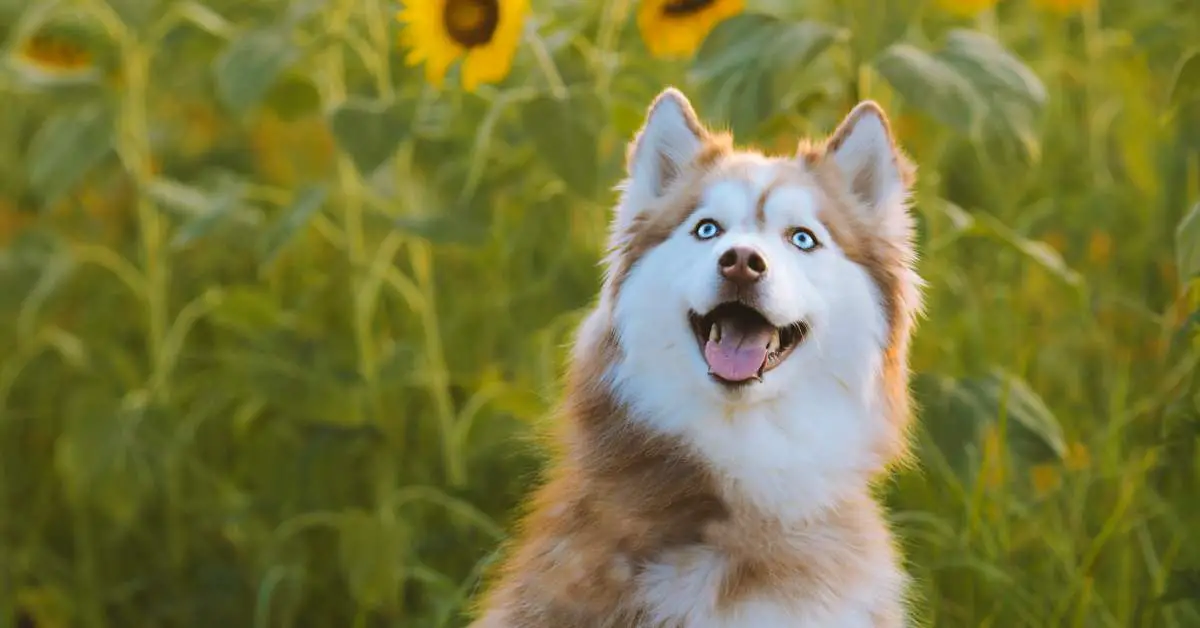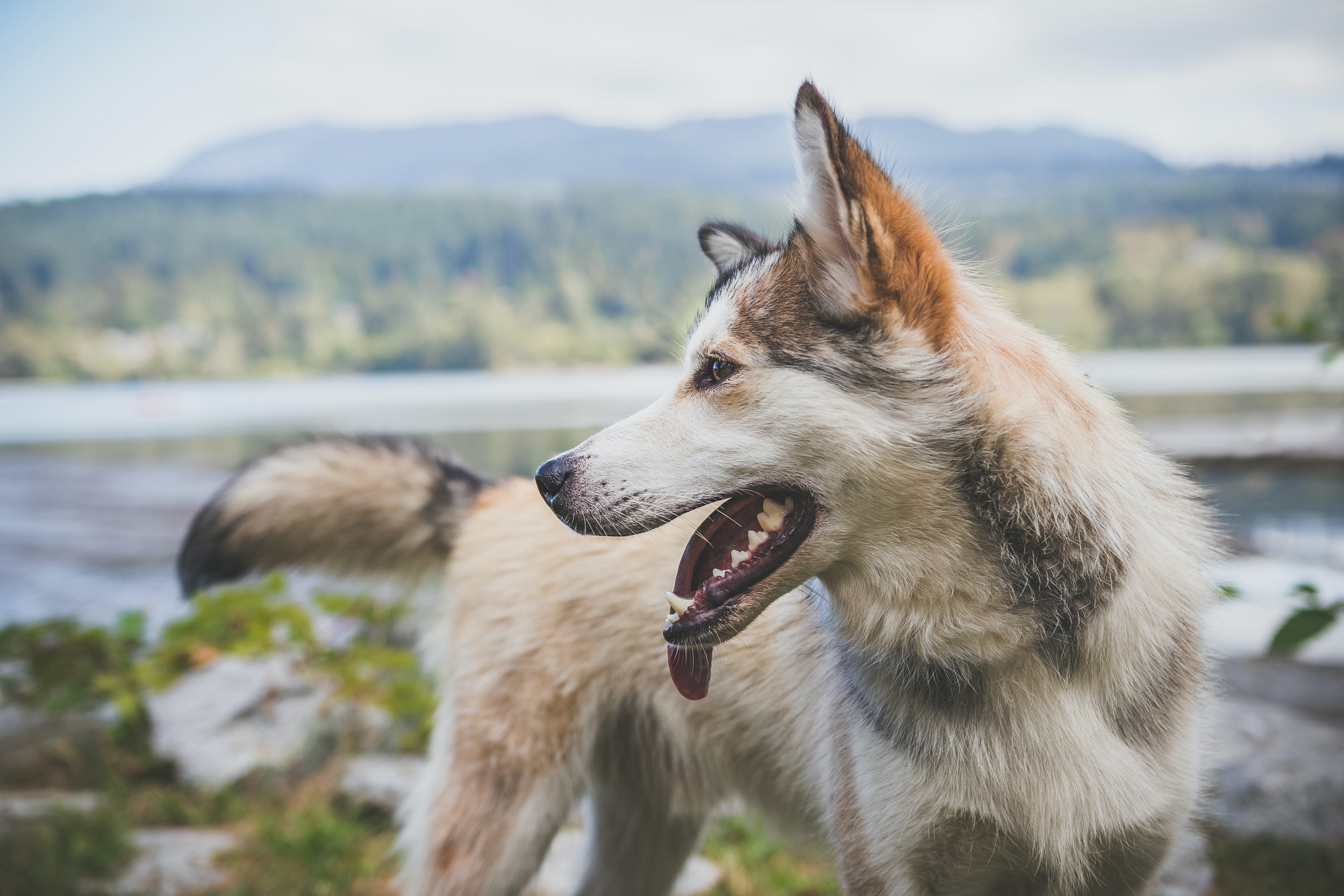What Can Huskies Eat? A Comprehensive Guide to Safe and Healthy Foods for Your Furry Friend

Huskies possess a high level of energy, which requires them to have a diet rich in nutrients. Dog owners across the globe understand the difficulties in keeping up with a husky’s nutritional demands.
If you are wondering what can huskies eat, you’ve come to the right place. But first, let’s learn more about a husky’s nutritional requirements.
What does a Husky need in their diet?
Since huskies are active dogs, they require a balanced diet with appropriate nutrition proportions.
Moreover, like all dog breeds, huskies require essential foods to maintain a warm enough coat to withstand freezing temperatures.
A growing husky puppy can also feast on the same adult food that your older husky eats. More so, growing husky puppies might actually need more protein than a grown husky depending on their size and activity level.
Here are all the nutrients that your husky needs in order to grow into a healthy, majestic furry friend.
1. Protein
A husky’s diet, on average, should consist of at least 30%-40% proteins. This is because protein is essential for muscle development in a medium-sized dog, such as a husky.
Your husky can obtain proteins from both animal and plant sources.
Animal protein is the best food for huskies since it contains all the essential amino acids, fatty acids, and minerals for optimum body and coat growth.
For example, huskies love to eat beef, ground meat, eggs, and lamb. They even love to eat fish, granted that it has been cooked and deboned properly.
Plant-based proteins, such as green beans and grains are also healthy for your husky.
2. Carbohydrates
Carbohydrates are important for your husky since they are the most readily available source of energy in the blood. While protein is important, no dog survives on just proteins let alone a husky.
Brown rice, white rice, frozen vegetables, fruits, and beans are all excellent sources of carbohydrates for your dog. Sweet potatoes are also an excellent carb-rich food option.
Unlike most other dogs, huskies have a more refined palate, which is why they love to eat a slice of fruit or a little serving of vegetables with their main course.
3. Healthy Fats
Traditional dietary commentary believes that fats are always bad for health. Therefore, the nutritional value of fats is often overlooked.
However, fats, especially high-density fats, are not just good but vital for your dog’s health.
Fatty acids are basic building blocks of fats that are essential for your dog’s skin, hair, normal organ function, nervous system, and outer coat.
Your husky can obtain essential fatty acids from dairy products, eggs, and most meat sources.
4. Vitamins and Minerals
Vitamins and minerals are micronutrients that are essential in small doses for optimal growth.
These contribute to better health, better immune function, glowing skin, and an overall healthier environment for your dog.
Vitamins and minerals are readily available in most fruits and vegetables, as well as fish oil.
Your Husky’s Diet. What Can Huskies Eat?
Now that you know the dietary requirements for your dog, here are a few food options for your beloved pet.
1. Organic Diet
A healthy organic diet is the best diet for your dog. It consists of balanced plant and animal meat protein sources, carbohydrates from fruits and vegetables, and essential fats.
Fish, lamb, beef, fresh chicken meal, other meat proteins, eggs, and grains are all excellent sources of protein, carbohydrates, and fats.
Huskies can also eat vegetables but you’ll have to experiment with multiple veggies to find out which one’s your dog’s favorite.
You can also feed your husky raw bones, such as fish bones. Cooked bones are harder to digest and should be avoided.
Utilizing chicken fat to make a broth is also an excellent way to fulfill your husky’s daily calorie intake requirement.
2. Nutritional Raw Food Diet
You can also give your dog raw food as part of their healthy husky diet. Huskies can digest raw meat and other raw foods without any problem thanks to their strong digestive systems.
Be careful with a raw diet though, feeding your husky raw eggs and meat can lead to parasitic infections and problems like pancreatitis and gastroenteritis.
You can also grind up raw ingredients and portion them proportionally to make nutritionally-balanced homemade dog food.
3. Commercial Dog Food
Most commercial husky food products, even the best dog foods, do not contain everything required for your dog’s diet.
You can find both dry dog food for huskies as well as wet dog food for huskies to eat.
Canned dry food has a crunchy texture while wet food has, you guessed it, a wet texture. Deciding which one to get completely depends on your dog’s preference.
You can also find dry and wet mixed dog food as well but there is no significant difference between the nutritional value of these canned foods.
Canned food, however, is not always fresh and your dog might not like it at all.
You will have to experiment with different dry dog foods and wet foods to find out which one is the best dog food for your husky!
How much food should I feed my husky to maintain an ideal weight?

Dog size and life stages are important factors that dictate a husky’s nutritional demands.
For example, while husky puppies require a lot of calories for optimal growth, adult husky nutrition requirements will be more than that of a husky puppy.
Similarly, senior huskies might not need a lot of calories for maintenance in their daily life.
According to PetMD, young male Siberian huskies, on average require 2 meals a day with one cup of dog food each meal.
A grown female husky requires 1.75 cups of dog food daily divided into 2 meals. Growing husky puppies may even require 12-16 ounces of dog food daily, adding up to 3-5 meals a day!
The best diet for your husky depends on their nutritional goals as well. If the goal is to lose weight, you might want to keep fewer calories in your husky’s food.
However, you might want to provide a lot of protein to your dog if the goal is to make them big and healthy.
Conclusion
Siberian huskies eat a lot. A balanced approach is often required when deciding what foods can your husky eat.
Animal and plant proteins, fruits, vegetables, grains, eggs, and even some nuts are important sources of macronutrients for your husky.
Moreover, huskies also require a good portion of micronutrients, such as vitamins and minerals, every day as well.
You can also buy canned dog food but even the best dog food products do not provide adequate nutrition on their own. Consult a dog nutritionist to formulate a healthy eating schedule for adequate pet nutrition.
FAQs:
What can huskies not eat?
You should not feed your husky raw fish, garlic, onion, chocolate, grapes, and certain kinds of nuts.
What kind of food do huskies eat?
A husky dog’s diet is pretty versatile. Huskies love to eat lamb, chicken, and fish meat. They also love vegetables such as green beans, zucchini, and cucumber, as well as some fruits.
What do huskies like to eat as a treat?
Huskies love to eat cheddar cheese as treat. You can also give your dog the most commercially available dog treats but you will have to experiment to find out which ones your dog likes the most.
